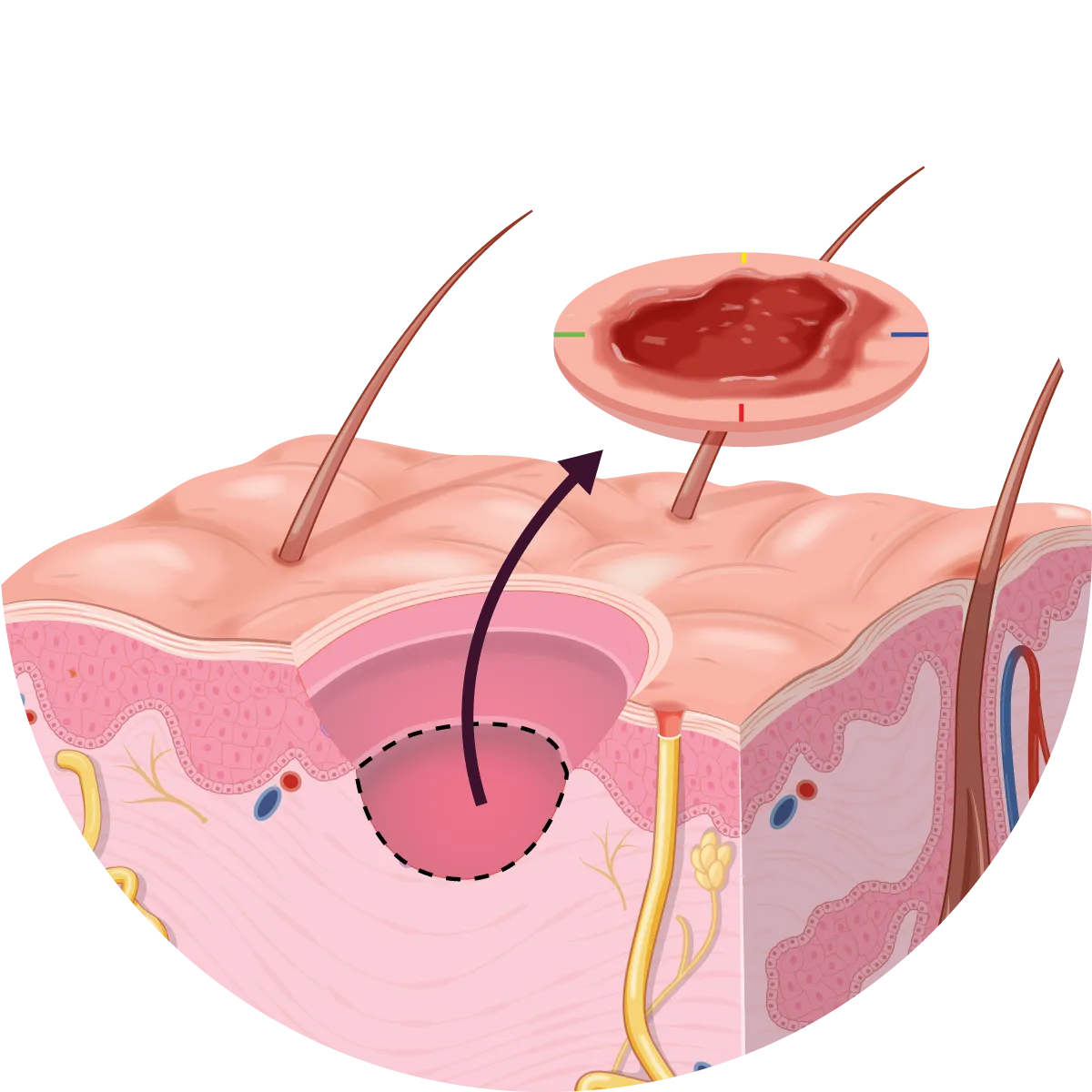Skin cancer on the face, nose and head requires specialist treatment due to the complicated anatomy and cosmetic significance of these areas. Mohs surgery is a precise and effective approach that prioritises both complete cancer removal and preservation of healthy tissues.
Here’s a detailed guide on why Mohs surgery is an excellent choice for skin cancers on the face and nose, and why Skintel is a trusted provider in New Zealand.
What is Mohs Surgery?
Mohs surgery is a specialised technique for the treatment of skin cancers, particularly in areas where precision and tissue preservation are vital, such as the nose or the face. The process involves removing cancerous tissue layer by layer, with each layer examined in real-time. This ensures that:
- All cancerous cells are removed.
- Maximum healthy tissue is preserved.
This method’s unique focus on thoroughness and tissue conservation has made it the gold standard for treating skin cancers in sensitive areas like the face and nose.
Why the Face and Nose Are Different
Anatomical Complexity: The tissues on the face and nose are thinner and cover a lot more structures such as numerous nerves, blood vessels, and muscles.
Cosmetic Visibility: Even small scars can significantly impact appearance, making it essential to minimise scarring and preserve natural contours without distortion.
Cancer Aggressiveness: Cancers on the face and nose, including basal cell carcinomas (BCC) and squamous cell carcinomas (SCC), often require careful and complete removal due to their potential for recurrence and local invasion. Skin cancers on the face often have higher complication rates.
The intricate anatomy and cosmetic sensitivity of these areas demand a highly skilled approach like Mohs surgery.
What Makes Mohs Surgery Ideal for the Face and Nose
Consider the unmatched benefits Mohs surgery brings specifically to these delicate areas:
Complete Cancer Clearance with Minimal Tissue Loss
Each layer is meticulously examined for cancer cells, ensuring the entire tumour is removed while leaving as much healthy tissue intact as possible. This is especially important for preserving normal facial structures.
Tailored Reconstruction for Cosmetic Excellence
A Mohs surgeon doesn’t just remove cancer; they also plan and execute the reconstruction, tailored to the patient’s anatomy, prioritising both function and aesthetics.
Reduced Risk of Recurrence
Mohs surgery’s microscopic precision significantly lowers the risk of recurrence and other complications, offering patients peace of mind.
Adaptability to Complex Cases
For more complicated cases, such as those with recurrent skin cancers or those with tumours in challenging locations (e.g., the nose or near the eyes), Mohs surgery’s targeted approach is invaluable.
Why Choose Skintel for Mohs Surgery?
- Specialist Expertise: Our highly experienced dermatologist and Mohs surgeon, Dr. David Lim, has performed over 10,000 successful skin cancer surgeries. He is a fellow of the Royal Australasian College of Physicians (RACP), Australasian College of Dermatologists (ACD), New Zealand Dermatologic Society Incorporated (NZDSI) and the American College of Mohs Surgery (ACMS). He is also an ACD-approved Mohs specialist and an NZDSI-approved Mohs surgeon, making him one of the most sought-after surgeons in New Zealand.
- Advanced Technology: Skintel is actively involved in cutting-edge research, including the use of artificial intelligence (AI) to enhance precision in slide analysis.
- Comprehensive Care: From diagnosis and treatment to aftercare, Skintel supports patients through every stage of their journey with compassion and professionalism.
- Commitment to Best Outcomes: Above all, at Skintel, our highest priority is achieving the best possible outcome for each patient through personalised care. We tailor each treatment plan to individual needs, ensuring comfort and long-term results.
Precautionary Measures You Can Take
- Self-examine regularly: Look out for any unusual skin changes, especially on the face.
- Seek specialist advice early: Don’t delay seeing a specialist dermatologist or Mohs surgeon if you notice something suspicious.
- Protect your skin year-round: Sun protection is of critical importance in New Zealand – use broad-spectrum sunscreens every day, cover up and wear hats.

